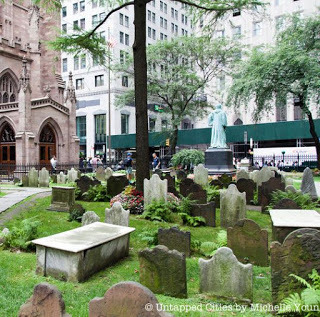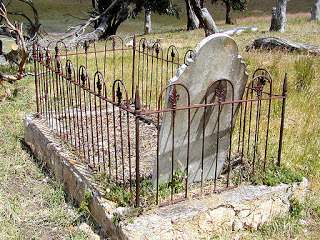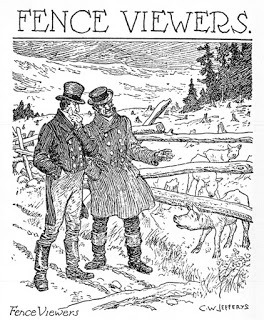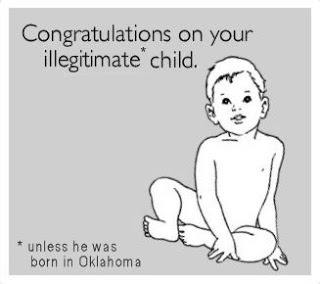
|
Voters Can Change City Charters In The Same Manner They Change State Laws:
Voters Can Change City Charters In The Same Manner They Change State Laws:
Voters Can Change City Charters In The Same Manner They Change State Laws:
Voters Can Change City Charters In The Same Manner They Change State Laws:
Voters Can Change City Charters In The Same Manner They Change State Laws:

The powers of initiative and referendum, reserved by the Oklahoma Constitution to the people, are reserved to the people of every municipal corporation with reference to all legislative authority which it may exercise and amendments to municipal charters.
Laws 1977, c. 256, § 15-101, eff. July 1, 1978.
The procedure in municipalities which do not provide by ordinance or charter for the manner of exercising the initiative and referendum powers shall be governed by the Oklahoma Constitution and general state law, except as otherwise provided in Sections 15-101 through 15-110 of this title. The duties required of the Governor by state law shall be performed by the mayor; the duties of the Secretary of State shall be performed by the municipal clerk; and the duties of the Attorney General shall be performed by the attorney for the municipality. The procedure for initiative and referendum as to municipal legislation shall be as nearly as practicable the same as those for measures relating to the people of the state at large.
Laws 1977, c. 256, § 15-102, eff. July 1, 1978.
A. The form of the petition for either initiative or referendum in a municipality shall be substantially as provided in Sections 1 and 2 of Title 34 of the Oklahoma Statutes. A true copy of each measure proposed by initiative and referendum shall be filed with the clerk of the municipality before it is circulated and signed by the registered voters.
B. Every petition for either the initiative or referendum shall be signed by a number of the registered voters residing in the municipality equal to at least twenty-five percent (25%) of the total number of votes cast at the preceding general election or biennial town meeting if the municipality is subject to the Oklahoma Town Meeting Act. The signatures to each petition shall be verified in the manner provided by law.
C. Signed copies of an initiative petition shall be submitted to the clerk within ninety (90) days after the initial filing of the measure with the clerk. Signed copies of a petition invoking a referendum upon any ordinance or resolution shall be submitted to the clerk within sixty (60) days after the passage of the ordinance or resolution. Amendments to municipal charters may be proposed by an initiative petition, and signed copies of such petition shall be submitted to the clerk not less than sixty (60) days before the election at which the amendments are to be voted upon.
Added by Laws 1977, c. 256, § 15-103, eff. July 1, 1978. Amended by Laws 1988, c. 105, § 18, eff. Nov. 1, 1988. Amended by Laws 2016, c. 41, § 1, eff. Nov. 1, 2016.
0 Comments
Eternal Rights Of All Relatives To Visit A Grave On your Property:
Eternal Rights Of All Relatives To Visit A Grave On your Property:
Eternal Rights Of All Relatives To Visit A Grave On your Property:
Eternal Rights Of All Relatives To Visit A Grave On your Property:
Eternal Rights Of All Relatives To Visit A Grave On your Property:
When a burial ground, whether previously known or unknown, is on or surrounded completely by private property, the descendants of the interred will have visitation rights in perpetuity. The grave is to remain undisturbed by the property owner.
§8-187. Abandoned cemetery on privately owned land - Visitation rights.
Any relative of the deceased who wishes to visit an abandoned cemetery which is completely surrounded by privately owned land, for which no public ingress or egress is available, shall have the right to reasonable ingress or egress for the purpose of visiting such cemetery. Added by Laws 1992, c. 214, § 1, eff. Sept. 1, 1992.This right of access to such cemeteries extends only to visitation during reasonable hours and only for purposes usually associated with cemetery visits. For the purposes of this section, “abandoned cemetery” means any place where human skeletal remains are buried and which no body has been interred for at least twenty-five (25) years and where such site is readily identifiable as a cemetery by an inspection of the property. Any relative of the deceased who wishes to visit an abandoned cemetery shall make a good faith effort to notify the owners and tenants, if any, of said property prior to visiting the cemetery. This section shall not be interpreted to allow the creation of an easement or claim of easement nor a right of ownership or claim of right of ownership to an abandoned cemetery.
Cemeteries Can Stay Anywhere:
Cemeteries Can Stay Anywhere:
Cemeteries Can Stay Anywhere:
Cemeteries Can Stay Anywhere:
Cemeteries Can Stay Anywhere:

§8-7. Exemptions.
All the property of every such benevolent corporation, and the lots sold by it to individual proprietors, shall be exempt from taxation, assessment, lien, attachment, and from levy and sale upon execution; and all such real property shall be exempt from appropriation for streets, roads, or any other public uses or purposes.
R.L.1910, § 386.
Force Your Neighbor To Pay For Half Your Fence:
Force Your Neighbor To Pay For Half Your Fence:
Force Your Neighbor To Pay For Half Your Fence:
Force Your Neighbor To Pay For Half Your Fence:
Force Your Neighbor To Pay For Half Your Fence:
In many neighborhoods, property owners often assume they have no obligation to pay for a fence they didn’t ask for. But the law says otherwise. In most situations, the only way to avoid paying for half the fencing costs is to declare your own abutting property as ‘common’ and allowing any and all public activities to take place on your property. §4-142. Fence repair.
All partition fences shall be kept in good repair throughout the year, unless the owners on both sides otherwise agree in writing.
R.L. 1910, § 160.
§4-143. Commons - Owners not required to fence - Lands enclosed or used otherwise than as commons - Duty to fence.Any person not wishing his land enclosed, and not occupying or using it otherwise than as commons, shall not be compelled to contribute to erect or maintain any fence between him and an adjacent owner; but when he encloses or uses his land otherwise than as a commons, he shall contribute to the partition fences as in this article provided.R.L. 1910, § 161. §4-146. Joinder to partition fence - Payment for or rebuilding of half of fence.
When land which has lain unenclosed is enclosed the owner thereof, before he join to any partition fence, already erected, shall pay for one-half (½) of each partition fence between his lands and the adjoining lands, the value to be ascertained by the fence viewers, and if he neglects for thirty (30) days after notice and demand to pay the same, the party to whose fence he joins may recover as before provided, or such person, enclosing such land, may, at his election, rebuild and make one-half (½) of the fence, and if he neglects so to do for two (2) months after making such election, he shall be liable as above provided.
R.L. 1910, § 164.
§4-147. Recorded fence division - Effect on owners and successors.
When a division of fence between the owners of improved land shall have been made, either by fence viewers or agreement in writing, and is recorded in the office of the county clerk of the county where the lands are, the owners and their heirs and assigns shall be bound thereby, and shall support them accordingly.
R.L. 1910, § 165.
How To Be Appointed To The Office Of 'Fence Viewer':
How To Be Appointed To The Office Of ‘Fence Viewer’:
How To Be Appointed To The Office Of ‘Fence Viewer’:
How To Be Appointed To The Office Of ‘Fence Viewer’:
How To Be Appointed To The Office Of ‘Fence Viewer’:
When property owners have a dispute regarding a common fence on a property line, Oklahoma law provides for the creation of a tribunal of 3 ‘Fence Viewers’. This office has official powers and state sanctioning.
Here is the statutory code regarding the authority and make up of the Fence Viewers.
§4-139. Controversy over partition fence - Application to fence viewers - Notice - Authority of viewers.
When a controversy arises between the respective owners about the obligation to erect or maintain a partition fence, either party may apply to the fence viewers, who, after due notice to each party, may inquire into the matter and assign to each his share thereof, and direct the time in which each shall erect or repair his share in the manner provided above.
R.L. 1910, § 157.
§4-139. Controversy over partition fence - Application to fence viewers - Notice - Authority of viewers.
When a controversy arises between the respective owners about the obligation to erect or maintain a partition fence, either party may apply to the fence viewers, who, after due notice to each party, may inquire into the matter and assign to each his share thereof, and direct the time in which each shall erect or repair his share in the manner provided above.
R.L. 1910, § 157.
§4-151. Additional powers of fence viewers.When any question arises between parties other than those stated, concerning their rights in fences or their duties in relation to building or maintaining or removing them, such question may be determined by the fence viewers.R.L. 1910, § 169.
The 'Bastard Prohibition' Act:
The ‘Bastard Prohibition’ Act:
The ‘Bastard Prohibition’ Act:
The ‘Bastard Prohibition’ Act:
The ‘Bastard Prohibition’ Act:
If you were born after July 1, 1974, it is illegal for anyone to call you ‘illegitimate’ or 'bastard’. the state legislature says that free speech rights do not extend to the freedom to describe a person pertaining to their lineage using those to terms.
§10-6.5. Use of certain words in reference to children born out of wedlock prohibited.
A. On and after the date upon which this act becomes operative, the designations “illegitimate” or “bastard” shall not be used to designate a child born out of wedlock.
B. No person, firm, corporation, agency, organization, the State of Oklahoma nor any of its agencies, boards, commission officers or political subdivisions, nor any hospital, nor any institution supported by public funds, nor any employee of any of the above, shall use the term “illegitimate” or “bastard” in referring to or designating any child born on or after the operative date of this act.
Laws 1974, c. 297, § 1, operative July 1, 1974.
Impotency & The 11 Other Legal Grounds For Divorce:
Impotency & The 11 Other Legal Grounds For Divorce:
Impotency & The 11 Other Legal Grounds For Divorce:
Impotency & The 11 Other Legal Grounds For Divorce:
Impotency & The 11 Other Legal Grounds For Divorce:
While your health insurance policy may not pay for that little purple pill, your marriage may depend on it. It seems that a woman has legal grounds for divorcing her man if his medical condition results in a significant lack of ‘stamina’.
§43-101. Grounds for divorce.
The district court may grant a divorce for any of the following causes:
R.L. 1910, § 4962. Amended by Laws 1947, p. 79, § 1, emerg. eff. Feb. 24, 1947; Laws 1953, p. 59, § 1; Laws 1955, p. 141, § 1, emerg. eff. March 3, 1955. Renumbered from § 1271 of Title 12 by Laws 1989, c. 333, § 1, eff. Nov. 1, 1989. Amended by Laws 2014, c. 428, § 1, eff. Nov. 1, 2014.
Preachers Barred From Courthouse Soliciting:
Preachers Barred From Courthouse Soliciting:
Preachers Barred From Courthouse Soliciting:
Preachers Barred From Courthouse Soliciting:
Preachers Barred From Courthouse Soliciting:

Either judges don’t want the competition, or they just don’t want to make weddings that convenient. For whatever the reason, you’ll have to go find an officiant off the courthouse grounds. §43-16. Soliciting in or near court house or grounds prohibited.It shall be unlawful for any person to solicit directly or indirectly within any courthouse, premises or grounds or lots on which a courthouse may be located in any county within the State of Oklahoma for himself or for and on behalf of any minister of the Gospel or other person, the performance of a marriage ceremony. Laws 1941, p. 169, § 1. §43-17. Punishment for violations.Any person violating this act shall be guilty of a misdemeanor and shall be punished by a fine of not to exceed Twenty-five Dollars ($25.00) for the first conviction, and for any second or subsequent conviction by a fine of not less than Twenty-five Dollars ($25.00) nor more than One Hundred Dollars ($100.00). Laws 1941, p. 170, § 2.
We All Can Initiate Eminent Domain Claims:
We All Can Initiate Eminent Domain Claims:
We All Can Initiate Eminent Domain Claims:
We All Can Initiate Eminent Domain Claims:
We All Can Initiate Eminent Domain Claims:
In Oklahoma any private person or corporate interest can seek to initiate an eminent domain action. While utilities and mass transit are more likely to seek these powers to remove others; our state statutes allow anyone to make a case for why it is an essential improvement in the public interest of the whole. This doesn’t mean any petition will be granted, but it does mean everyone is supposed to be on a ‘level playing field’.
§27-6. Private person or corporation - Eminent domain by.
Any private person, firm or corporation shall have power to exercise the right of eminent domain in like manner as railroad companies for private ways of necessity or for agriculture, mining and sanitary purposes.
R.L. 1910, § 3189.
§27-9. Application.
The provisions of this act shall be applicable to the acquisition of real property under the laws of this state for public use in any project or program in which federal, state or local funds are used.
Laws 1971, c. 355, § 1, eff. July 1, 1972.
§27-10. Reimbursement of owner for expenses after acquisition.
Any person, agency or other entity acquiring real property for public use under the laws of this state shall, as soon as practicable after the date of payment of the purchase price or the date of deposit into court of funds to satisfy the award of compensation in a condemnation proceeding to acquire real property, whichever is the earlier, reimburse the owner for expenses he necessarily incurred…
Liquor Banned Within Half A Mile of Polling Places:
Liquor Banned Within Half A Mile of Polling Places:
Liquor Banned Within Half A Mile of Polling Places:
Liquor Banned Within Half A Mile of Polling Places:
Liquor Banned Within Half A Mile of Polling Places:

It’s quite plausible that most Oklahoma polling places are opened within half a mile of some retail beer sales. A restaurant, night club, convenience store, grocer, or liquor store; are all granted licenses to freely sell on election days. But both the retail clerk and the patron are immediately committing criminal acts if a polling place is within half a mile (as the crow flies). I guess it’s yet another way in which opioids and cannabis are regarded more favorably than a can of beer, in the Sooner State?
|
It's Still the Law, In OklahomaA chronicle of laws you still have to obey, in the Sooner State. Archives
September 2023
Categories |












 RSS Feed
RSS Feed
